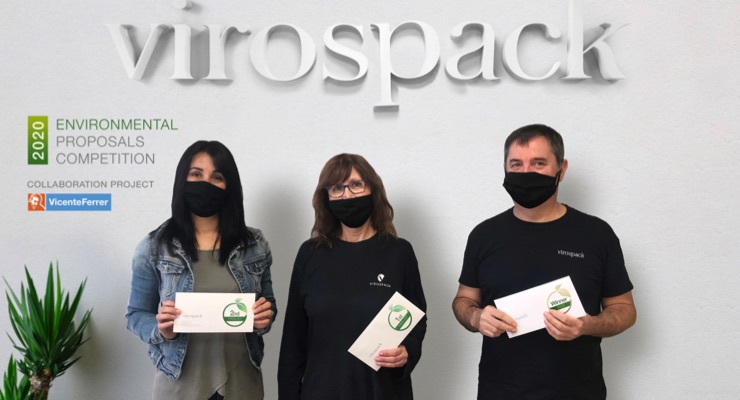Beauty Packaging Staff12.03.20
Vicenç Rodríguez, CEO of Virospack, says, “We have a strong commitment to the environment. We improve day by day with a clear philosophy ‘companies not only have the responsibility to produce or expand in a sustainable way, but also to raise awareness and engage their employees about the importance of the impact of their work on the environment.’”
As part of the company’s sustainability efforts, at the end of 2019, Virospack signed a collaboration agreement with the Vicente Ferrer Foundation (www.fundacionvicenteferrer.org/es/la-fundacion, which has several projects underway to eradicate poverty and ensure sustainable development in South India.
The Virospack Environment Committee selected several projects, and all employees were invited to vote to choose one. The winning project was the construction of water structures.
At the same time, Virospack was launching its Environmental Proposals Competition—a competition that would select the three best proposals. All the savings achieved in the company during a year as a result of the environmental proposals would be used to help the population of India that does not have drinking water, with the intention of preserving the natural water of the area and to provide them with water to grow and drink.
Virospack’s Environment Committee honored the three winners while following all Covid-19 restrictions. Isabel Pérez, operations manager at Virospack, and Santiago Guasch, head of the paint and metallization sections—both members of the Environment Committee—gave the awards to:
Torcuato Hernández from the Metallization section of Virospack, is the winner of this first edition. His project to reduce the energy consumption of metallizing machines was awarded first prize. His proposal of a new program has allowed the metallizing section to save more than 20,000kwh.
The second prize went to Montse Guerrero, head of the die cutting section. Her proposal for casting water waste with silicone to avoid hazardous waste has led to the reduction of one ton of this type of waste per year in its section.
Carmen Domenech, from the glass section, won the third prize. The design of new boxes for recycling at the end of the painting and metallization lines has made recycling easier for all colleagues, reusing elements that without these new boxes would have been discarded in the glass section.
As part of the company’s sustainability efforts, at the end of 2019, Virospack signed a collaboration agreement with the Vicente Ferrer Foundation (www.fundacionvicenteferrer.org/es/la-fundacion, which has several projects underway to eradicate poverty and ensure sustainable development in South India.
The Virospack Environment Committee selected several projects, and all employees were invited to vote to choose one. The winning project was the construction of water structures.
At the same time, Virospack was launching its Environmental Proposals Competition—a competition that would select the three best proposals. All the savings achieved in the company during a year as a result of the environmental proposals would be used to help the population of India that does not have drinking water, with the intention of preserving the natural water of the area and to provide them with water to grow and drink.
Virospack’s Environment Committee honored the three winners while following all Covid-19 restrictions. Isabel Pérez, operations manager at Virospack, and Santiago Guasch, head of the paint and metallization sections—both members of the Environment Committee—gave the awards to:
Torcuato Hernández from the Metallization section of Virospack, is the winner of this first edition. His project to reduce the energy consumption of metallizing machines was awarded first prize. His proposal of a new program has allowed the metallizing section to save more than 20,000kwh.
The second prize went to Montse Guerrero, head of the die cutting section. Her proposal for casting water waste with silicone to avoid hazardous waste has led to the reduction of one ton of this type of waste per year in its section.
Carmen Domenech, from the glass section, won the third prize. The design of new boxes for recycling at the end of the painting and metallization lines has made recycling easier for all colleagues, reusing elements that without these new boxes would have been discarded in the glass section.




























